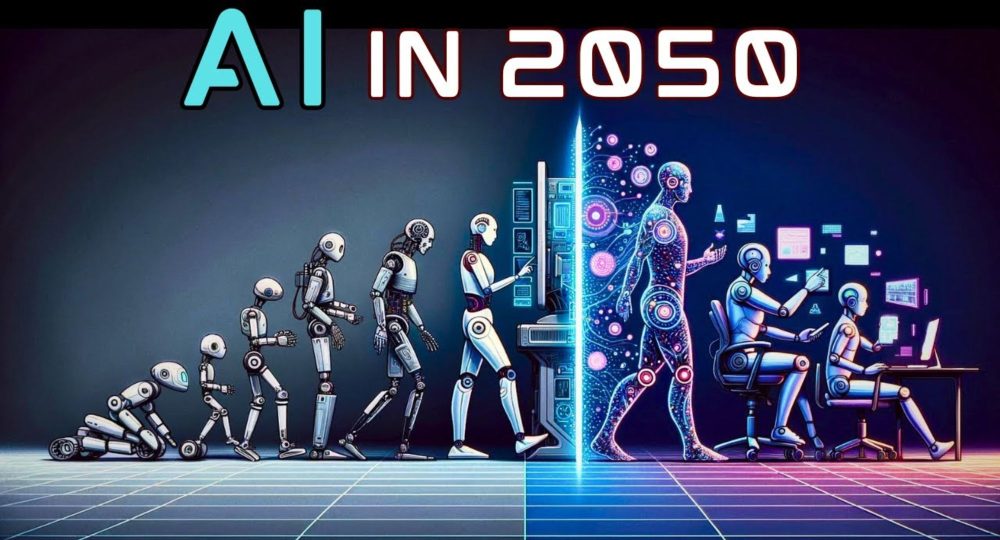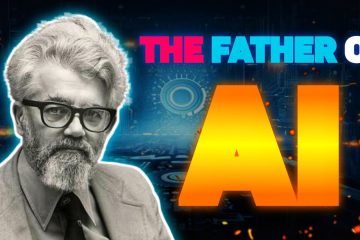
According to 2050 predictions, artificial intelligence (AI) will be integrated into a variety of sectors, including healthcare, education, transportation, and environmental management. These changes will be fueled by advancements in machine learning, quantum computing, natural language processing, and AI hardware.
1. genuinely universal artificial intelligence
Artificial General Intelligence (AGI), which is the ability of AI systems to comprehend, acquire, and apply knowledge across any task—much like a human mind, but at superhuman speed and scale—will probably be attained or surpassed.
2. Smooth Integration of Humans and AI
AI may permeate every aspect of daily life:
Interfaces between the brain and computer that allow for direct mental communication with AI helpers
AI companions that are tailored to your needs, desires, and objectives
AI enhancing human senses (such as improved memory or vision)
3. Everywhere Autonomous Systems
Drones, robots, fully autonomous cars, and infrastructure systems will all be commonplace, maximizing delivery, transit, construction, and emergency response with the least amount of human intervention.
4. AI in Innovation and Creativity
In the fields of literature, music, art, and science, AI may co-create with people to create ground-breaking works and find solutions to challenging issues (such as space exploration, medicine, and climate change).
5. Conscious and Ethical AI ?
There may be AI systems that possess consciousness or self-awareness, which would lead to discussions about AI rights and obligations in the fields of philosophy, ethics, and law.
6. Safety and Governance of AI
There will probably be sophisticated frameworks in place to guarantee AI operates in a safe, open, and moral manner, with international collaboration to mitigate risks such as abuse or unforeseen effects.
7. Transformation of the Workforce
The economy and education will change as a result of the automation of many occupations and the emergence of new positions centered on managing, training, and working with AI.
In summary, artificial intelligence (AI) in 2050 is likely to be intelligent, integrated, and cooperative, assisting humanity in overcoming obstacles, fostering innovation, and increasing our capacities—all the while posing significant queries regarding ethics, identity, and cohabitation.
Online gaming & AI agents
August 20, 2025Father of AI
August 20, 2025
More News
-
Cybersecurity in eesence
August 13, 2025 -
Prioritize Zero Trust
September 2, 2025 -
Why the Future Is Being Designed, Not Discovered
August 13, 2025
About Us
A globally recognized Business and Technological Digital Prints, we have been a trusted voice since 2017, highlighting excellence, innovation, and leadership in the world of technology and entrepreneurship.
Leadership
-
Marissa Frois – CEO of The Entrepreneur’s Source
August 8, 2025
Industry News
-
Prioritize Zero Trust
September 2, 2025 -
Is AI an influencer in new era
September 2, 2025 -
8 Technology Musts SMBs Can Afford
September 2, 2025










